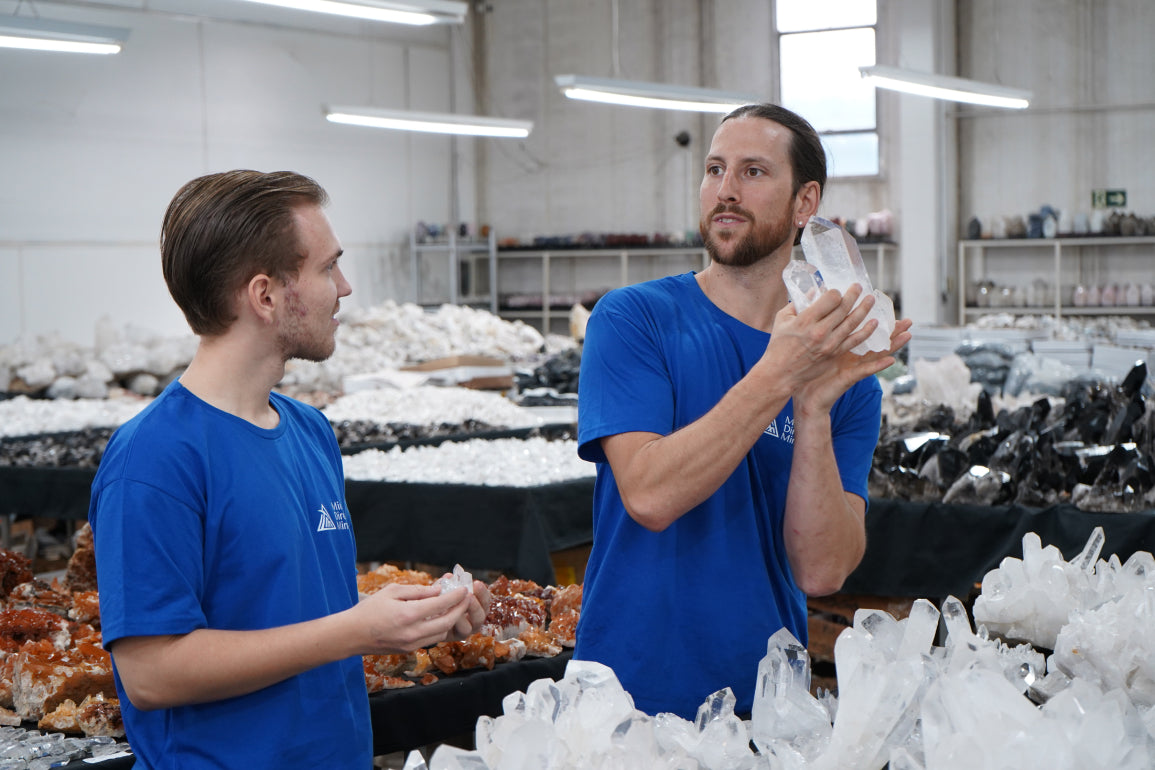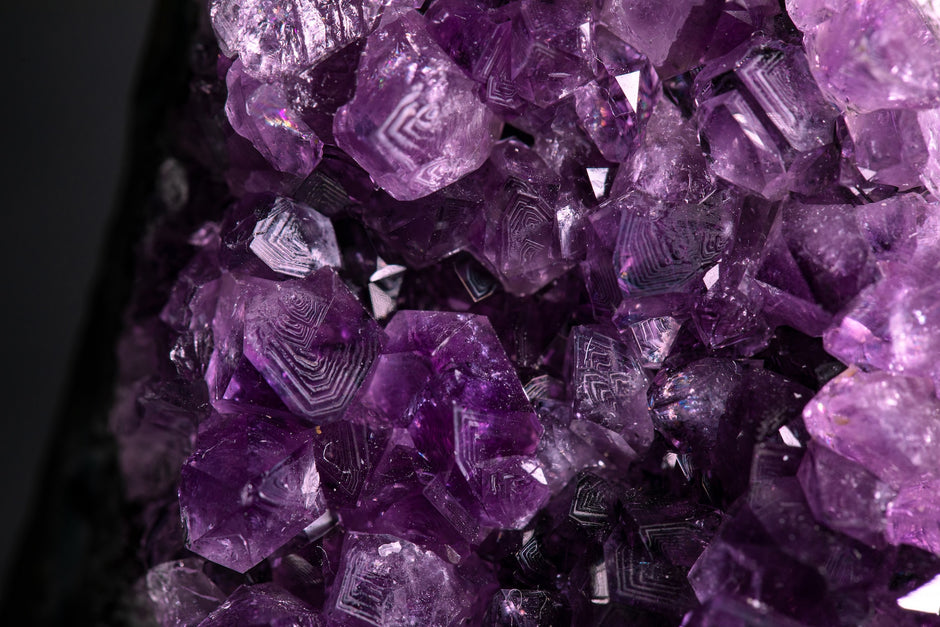In recent years, the spotlight on sustainability and ethical business practices has been shining brighter than ever across multiple industries. From fashion to technology, consumers and businesses alike are becoming more conscientious about their purchasing decisions. This rising awareness is making its way into the gemstone industry, where the allure of precious stones is now being closely scrutinized through the lens of ethical sourcing and sustainability.
This blog post aims to delve deep into the ethical complexities and sustainable practices surrounding the gemstone industry.
The Current State of the Gemstone Industry
Spanning multiple continents and influencing various economies, the gemstone industry has a global footprint that's hard to ignore. With mining operations from Africa to Asia, and retail businesses proliferating in the West, the demand for gemstones continues to grow. However, this demand is accompanied by traditional practices in gemstone mining and sourcing, some of which raise significant ethical questions.
The Ethical Challenges
At the core of the gemstone industry lie several ethical challenges that are becoming increasingly impossible to overlook. Child labor, exploitation of workers, and harsh working conditions are unfortunate but real issues plaguing the industry. Environmental degradation, such as deforestation and water pollution, compounds these human-related challenges, raising further concerns for ethical business practices.
The Importance of Ethical Sourcing
Beacon of Hope
Ethical sourcing stands as a positive solution amid the various challenges facing the gemstone industry.
Human Rights
Ethical sourcing helps prevent labor exploitation, child labor, and other human rights abuses commonly associated with gemstone mining.
Economic Upliftment
Communities where gemstones are mined can experience economic benefits through ethical sourcing practices.
Certifications for Assurance
Various certifications like the Kimberley Process for diamonds and the Responsible Jewellery Council’s Chain-of-Custody Certification exist to verify the ethical sourcing of gemstones.
Stamp of Approval
These certifications act as a form of quality assurance, confirming that the gemstones have been sourced in a manner that is respectful to both human life and the environment.
The Need for Sustainability
While the allure of gemstones often overshadows the means of their acquisition, the environmental implications of gemstone mining are far-reaching and deserve attention. Traditional mining practices can result in soil erosion, loss of biodiversity, and contamination of groundwater, leading to a cascade of ecological challenges.
The need for sustainability in the gemstone industry, therefore, cannot be overstated. For the long-term viability of the industry, adopting sustainable practices is crucial. This might include:
Reduced Water Usage
Implementing technologies that minimize the amount of water needed in mining operations, thereby conserving this essential natural resource.
Eco-Friendly Mining Technologies
Utilizing sustainable methods and machinery that significantly reduce the environmental impact of mining activities.
Rehabilitation of Mining Sites
After mining is complete, ensure that the area is restored to its natural state as much as possible, which can include planting trees and restoring native vegetation.
Energy-Efficient Operations
Adopting energy-saving technologies and renewable energy sources to power mining operations reduces the carbon footprint of the activities.
Waste Management
Instituting effective waste management systems to safely dispose of or recycle mining by-products, reducing environmental harm.
Community Engagement
Involving local communities in decision-making processes and ensuring that mining activities do not adversely affect their quality of life.
Regulatory Compliance
Strictly adhering to all local and international environmental regulations and going beyond compliance by adopting best practices in sustainability.
Audit and Transparency
Regularly auditing environmental practices and being transparent about sustainability efforts, both internally and to the public.
Sustainable Supply Chains
Extending sustainability efforts to suppliers and encouraging or requiring them to adhere to the same environmental standards.
Innovation and Research
Continually investing in R&D to find new methods of reducing the environmental impact of gemstone mining.
The B2B Perspective: A Strategic Imperative
In today's competitive marketplace, sustainability and ethics have evolved from being mere buzzwords to strategic imperatives that can significantly influence B2B purchasing decisions. Here's why:
Why Sustainability and Ethics Are Essential Selling Points
Today's customers, both B2C and B2B, are increasingly informed and conscientious. They're not just looking for quality and price; they're also scrutinizing the ethical and environmental footprint of their purchases. For B2B clients, aligning with suppliers that prioritize sustainability and ethical sourcing isn't just about corporate social responsibility; it's also about risk management and brand reputation. A lapse in ethical sourcing can lead to public relations nightmares and potential legal repercussions, affecting not just the supplier but also the businesses they serve.
Marketing Advantage: Stand Out in a Crowded Marketplace
Offering ethically sourced and sustainable gemstones isn't just the right thing to do; it's also a powerful differentiator in a crowded marketplace. Businesses that can authentically claim ethical and sustainable practices have a competitive edge. They attract B2B clients who are looking to enhance their own brand's reputation for corporate responsibility, thereby creating a virtuous cycle of ethical business practices.
Building Trust Through Transparency: The Foundation of Long-Term Relationships
Transparency in sourcing and sustainability practices isn't just a nice to have; it's a requirement for building trust. B2B clients are increasingly demanding transparency as they themselves are held to higher standards by their stakeholders. By being transparent, businesses can foster long-term relationships built on trust and shared values, making it easier to navigate challenges and seize opportunities together.
Making the Right Choice: It's More Than Just Business
In summary, ethical sourcing and sustainability are not optional add-ons but core considerations that can make or break B2B relationships. By focusing on these aspects, businesses don't just "do good"; they also position themselves for long-term success in a marketplace that values authenticity, responsibility, and ethical conduct.
Conclusion
The growing awareness around ethical sourcing and sustainability presents both a challenge and an opportunity. While there are certainly complexities and obstacles to overcome, it's evident that the path forward lies in responsible and conscious business practices. In an increasingly competitive and discerning market, adopting ethical and sustainable approaches is not just a moral obligation but a strategic necessity.
For B2B clients, aligning with ethical and sustainable practices offers not only a chance to do good but also to thrive in a market that values authenticity, responsibility, and long-term viability.
Ethical sourcing and sustainability in the gemstone industry are more than just trending topics; they are imperatives for a responsible and successful future. Let's all take steps to make that future a reality by supporting ethically sourced and sustainable gemstones.











